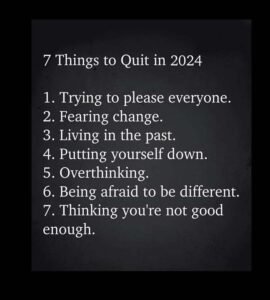Kayi Saare Bhoode Maa Baap Raasto Per Maangte Phirte Hai, Unki Aulad Zinda Rahke Bhi Dekh Bhaal...
“Your patience is your power” is a profound statement that holds significant meaning in various aspects of...
The quote “Life is so much simpler when you stop explaining yourself to people and just do...
The quote “Marrying late is better than marrying wrong” suggests that it is preferable to delay marriage...
7 Things to quit in 2024 1. Trying to please everyone. 2. Fearing change. 3. Living in...
Silent moves, Loud results The quote “Silent moves, loud results” conveys the idea that actions taken quietly,...
No money can buy Loyalty The quote “No money can buy loyalty” expresses the idea that genuine...
God has big plans for you, Believe it The quote “God has big plans for you, Believe...
Imagine buying Hajj tickets for your parents. The quote “Imagine buying Hajj tickets for your parents” conveys...
ALLAH Tests us with what we love. The quote “Allah tests us with what we love” is...
Some people will never support you because they are afraid of what you might become. This quote...
In life what you really want will never come easy This quote conveys the idea that achieving...
A mistake that makes you humble is better than an achievement that makes you arrogant. This quote...
“I have Allah, I’ll be okay” is a phrase expressing a strong sense of faith and reliance...
Sometimes it’s better to just remain silent, and smile. The quote “Sometimes it’s better to just remain...















































